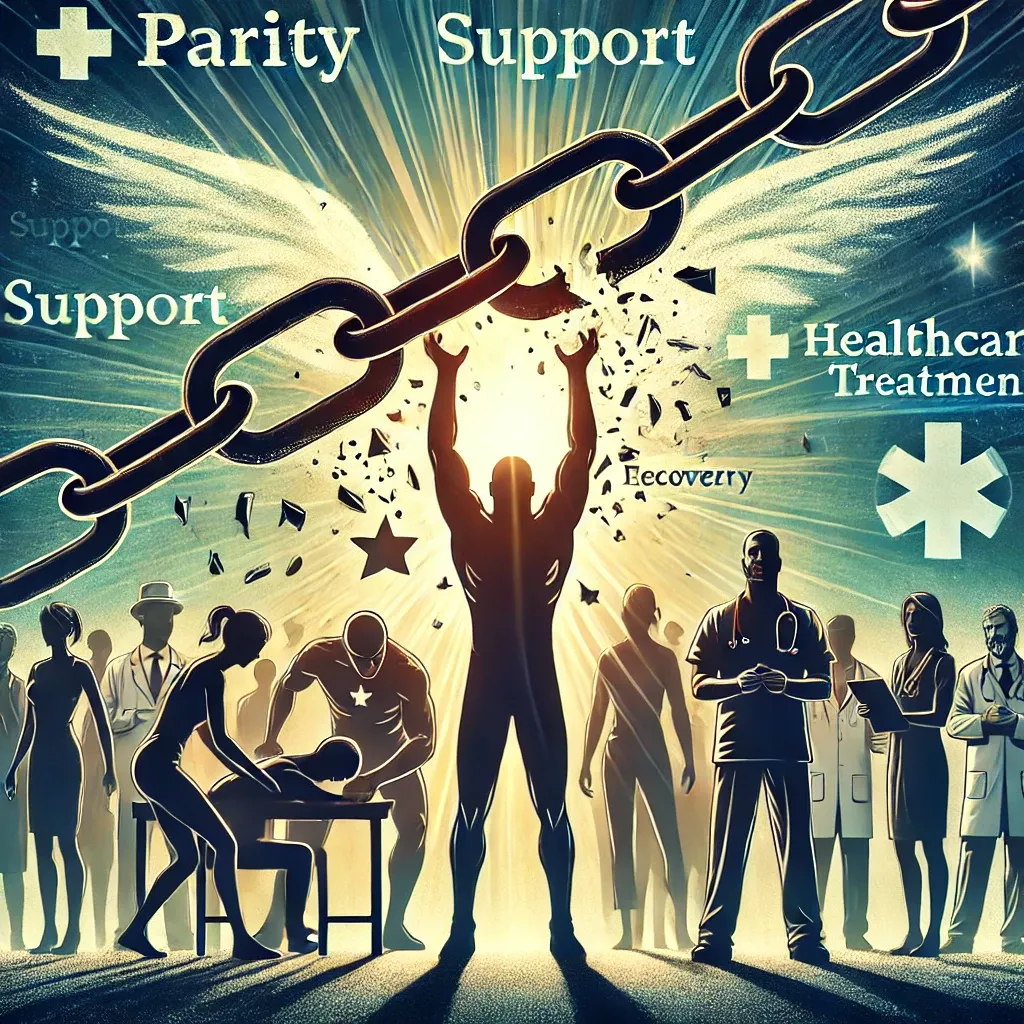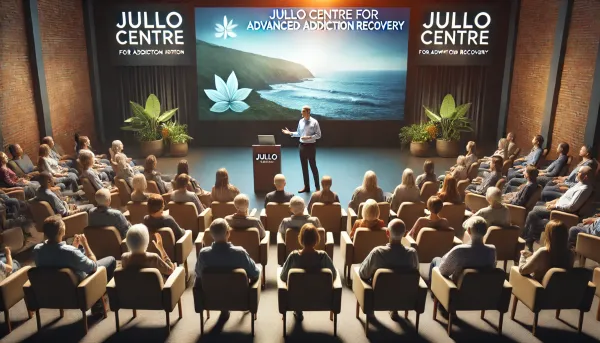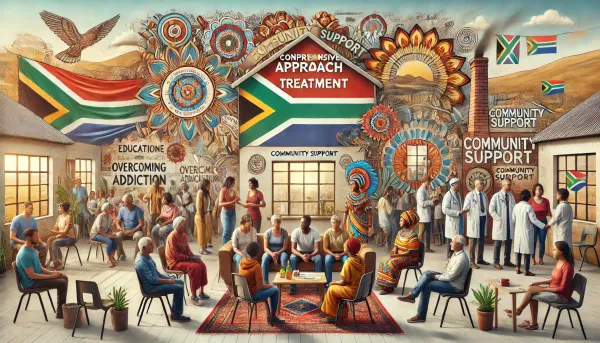Breaking the Stigma: Advocating for Parity in Addiction Treatment and Tailored Interventions

In the evolving landscape of healthcare, addiction treatment remains one of the most complex and misunderstood fields. Despite the significant strides made in understanding the science behind substance use disorders and mental health, addiction treatment often lags behind other medical interventions in terms of investment, scrutiny, and innovation. The need for parity in addiction treatment is greater than ever, particularly for individuals and families from previously disadvantaged backgrounds. It is time to confront this issue head-on, advocating for policies and practices that offer equitable, effective care tailored to the unique needs of each patient.
The True Cost of Addiction: Rebuilding Lives and Communities
Addiction is not an isolated condition—it touches every aspect of a person’s life and ripples through their family, social circle, and community. For people from previously disadvantaged backgrounds, the impact is often compounded by systemic barriers such as limited access to quality healthcare, education, and economic opportunities. This makes the investment in addiction treatment not just a medical necessity but a social imperative. Rebuilding a life after addiction is not a one-time intervention; it requires continuous, multifaceted support that addresses both the individual and the broader social context in which they live.
Why "One Size Fits All" Doesn’t Work
One of the major challenges in addiction treatment is the pervasive use of "one size fits all" interventions, which often fail to account for the diverse needs of patients. Addiction is not a homogeneous disease—it manifests differently depending on a person’s biology, psychology, and social environment. Treatment must reflect this complexity.
Consider a patient who has grown up in a community where substance abuse is normalized due to historical and socio-economic challenges. Their needs will differ drastically from someone who has developed a substance use disorder due to trauma or mental health issues in an affluent context. Yet, all too often, these individuals are offered the same standard interventions, which may not address their specific needs.
To combat this, we need a new standard of individualized, flexible care that continuously adapts to the evolving needs of each patient. The foundation of effective addiction treatment lies in the therapeutic relationship between the patient and clinician—a relationship built on trust, understanding, and tailored intervention. Each treatment plan must be revisited and revised throughout the recovery process, ensuring it reflects the patient's changing needs and circumstances.
The Misuse of the Term “Rehabilitation”
The term “rehabilitation” is frequently used in addiction treatment, but its meaning has become diluted over time. Too often, rehabilitation is understood as a short-term, one-size-fits-all program designed to suppress symptoms rather than address the root causes of addiction. This misuse of the term contributes to its negative connotations and, ultimately, its poor outcomes.
True rehabilitation should be a dynamic, patient-centered process that helps individuals not only overcome substance use but also rebuild their lives. This involves addressing the biological, psychological, and social factors that contribute to addiction, and creating long-term, sustainable changes in behavior and lifestyle. Addiction treatment must move beyond symptom suppression and focus on empowering individuals to live meaningful, fulfilling lives free from substances.
Investing in Parity: The Economic and Social Case
Achieving parity for addiction treatment is not only a matter of social justice—it’s an economic necessity. The costs associated with untreated addiction are staggering, from healthcare expenses to lost productivity and the social burden of broken families and communities. For individuals from previously disadvantaged backgrounds, the stakes are even higher, as they are often the least equipped to navigate the complex healthcare system and access the support they need.
Investing in addiction treatment yields long-term benefits that extend far beyond the individual. When we treat addiction, we are also healing families, reducing crime, and strengthening communities. This ripple effect is especially important in marginalized communities, where the effects of addiction are often felt more acutely. Every dollar spent on addiction treatment saves multiple dollars in social and healthcare costs down the line.
The Role of Neuroscience and Psychosocial Care
In recent years, advances in neuroscience and psychosocial care have revolutionized our understanding of addiction. We now know that addiction is not simply a failure of willpower but a complex interplay of genetic, environmental, and psychological factors. This knowledge should be integrated into every aspect of addiction treatment, from prevention to long-term recovery.
However, these scientific advancements have not always made their way into the clinic. Many patients and clinicians alike are unaware of the biological basis of addiction or how genetic and epigenetic factors can influence treatment outcomes. Demystifying neuroscience and making it accessible to patients is a crucial step toward more effective, individualized care. When patients understand the biological mechanisms at play, they are better equipped to engage with their treatment plan and take ownership of their recovery journey.
Tailored Interventions: A Call to Action
If we are to make meaningful progress in the fight against addiction, we must abandon the outdated notion that one treatment fits all. Instead, we must push for tailored, patient-centered interventions that reflect the unique needs of each individual. This includes:
Ongoing, individualized treatment plans that evolve with the patient’s needs.
Investment in integrated care models that combine neuroscience with psychosocial support.
Continuous education for both patients and clinicians on the biological and psychological aspects of addiction.
A focus on rebuilding not just the individual but also their family and community.
Conclusion: Moving Forward
Addiction treatment is at a crossroads. We can continue to apply band-aid solutions to a deep-rooted problem, or we can invest in the future by creating systems that truly address the complexities of addiction. By advocating for parity in addiction treatment and demanding tailored interventions, we can give every individual—regardless of their background—a real chance at recovery. It’s time to build a mental health system that empowers patients, strengthens families, and heals communities.
Call to Action:
Let’s push for policies that recognize the immense investment needed to rebuild patients, families, and communities affected by addiction. Join the conversation on how we can move toward a more equitable and effective addiction treatment system—because no one should be left behind in their recovery.
This article aims to draw attention to the necessity of a more nuanced, equitable, and individualized approach to addiction treatment, emphasizing the importance of systemic change and long-term investment in the health of individuals and their communities.



